Belinda Ennis, Peer in Training, Discusses Safe and Brave Spaces for Recovery | Meet The Peer
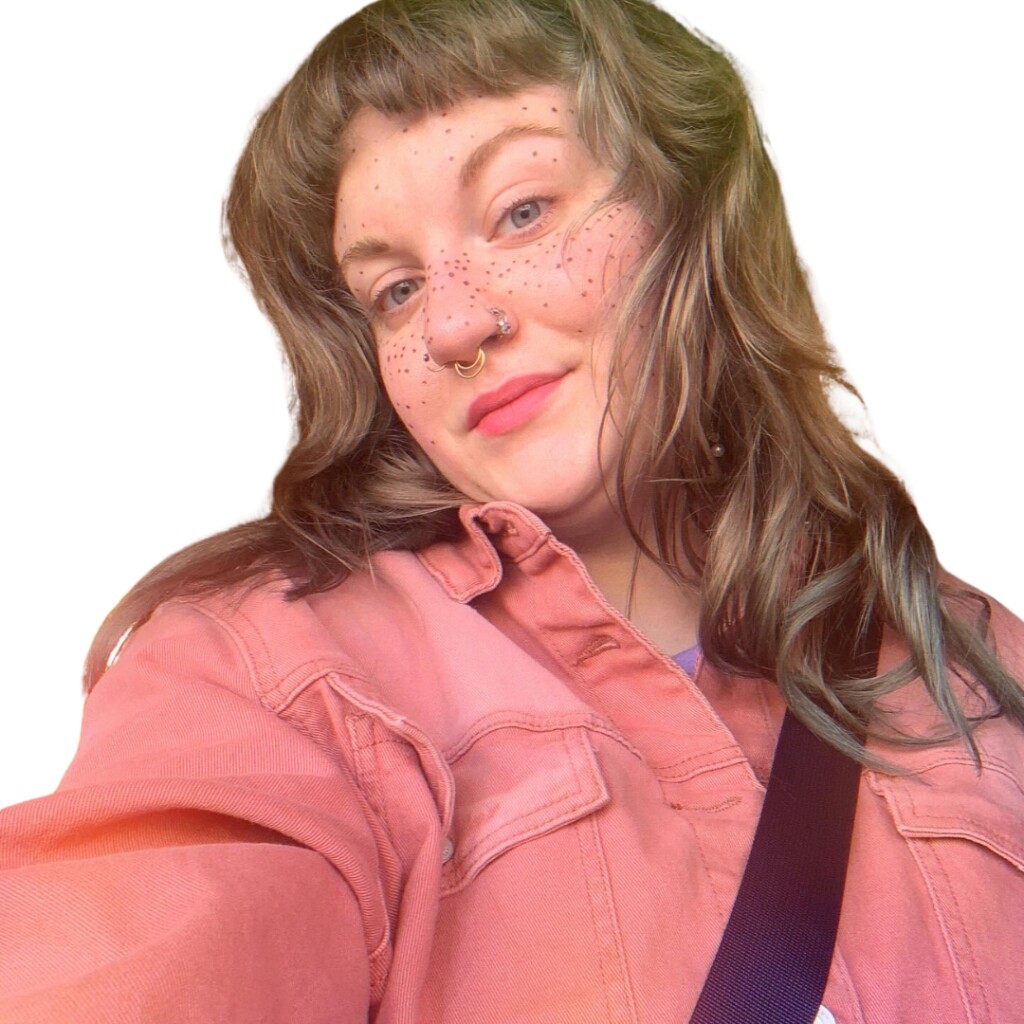
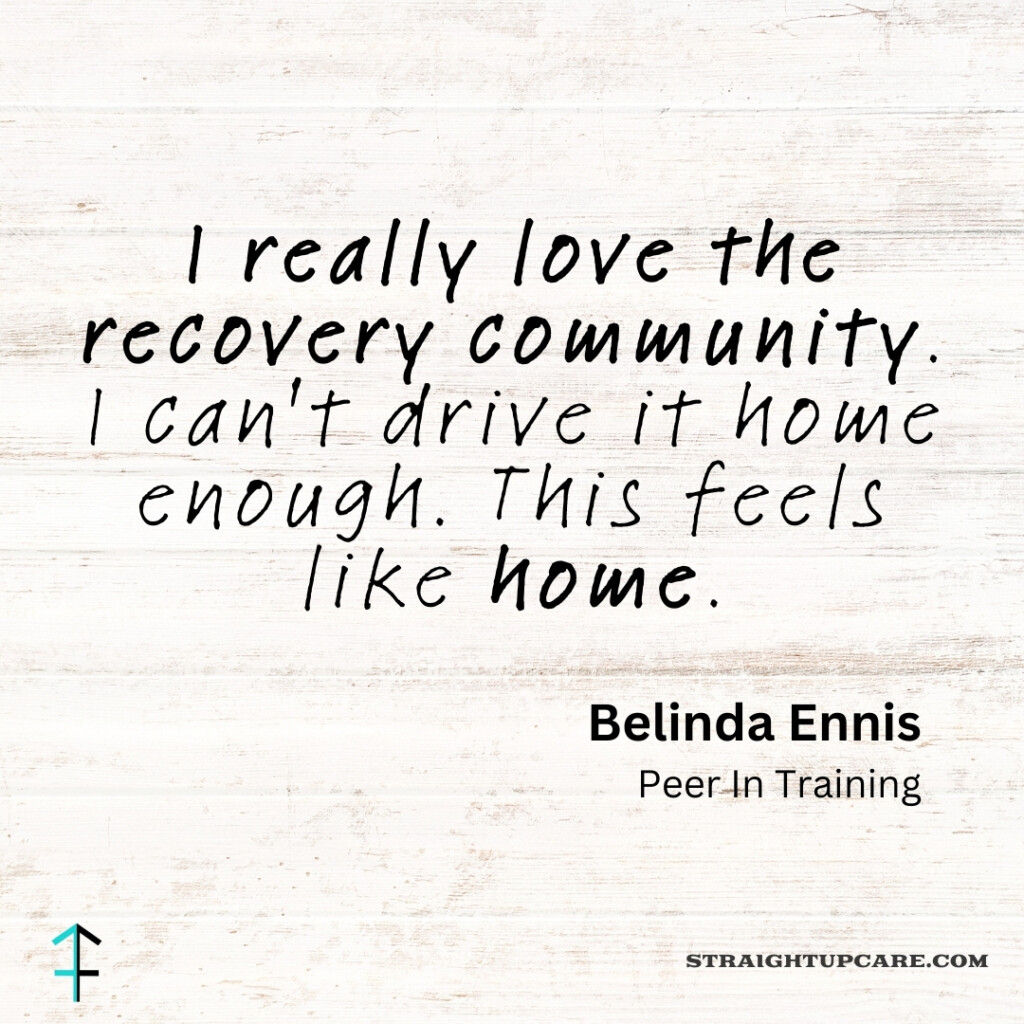
Recovery comes in many forms and following various diagnoses, life experiences, and hardships. In this episode of Meet The Peer, Belinda Ennis, a Peer In Training, shares her experiences with mental, physical, spiritual and emotional recovery. Belinda’s passion for the recovery community and the field is abundant, and you’ll have a hard time walking away without at least some desire to advocate for change. Through thoughtful comments and their lived experience, Belinda is championing necessary changes to care delivery, language, and the overall healthcare experience.
Connect with Belinda: https://straightupcare.com/members/belinda-ennis/
Catch the full episode to be captivated by Belinda’s enthusiasm for helping others and advocating for support for all, regardless of their backgrounds or beliefs.
Make sure you never miss an episode of Reduce The Stigma by subscribing on your preferred platform
Ways to Watch
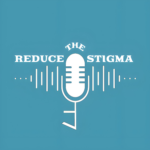
Watch on any device on ReduceTheStigma.com
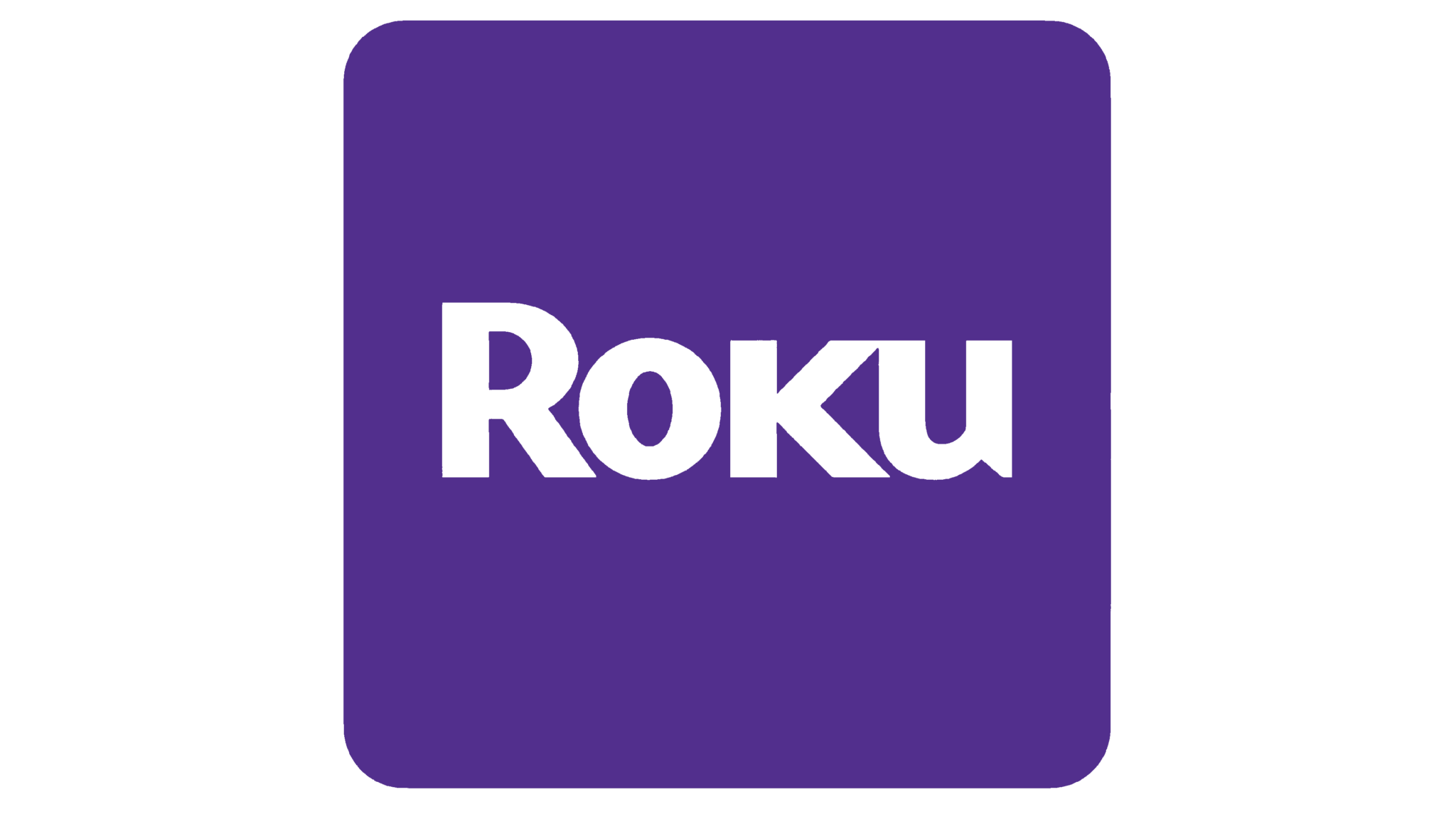
Install and Watch all Episodes on Reduce the Stigma RokuTV Channel

Install and Watch all Episodes on Reduce the Stigma Amazon Fire TV Channel
Ways to Listen
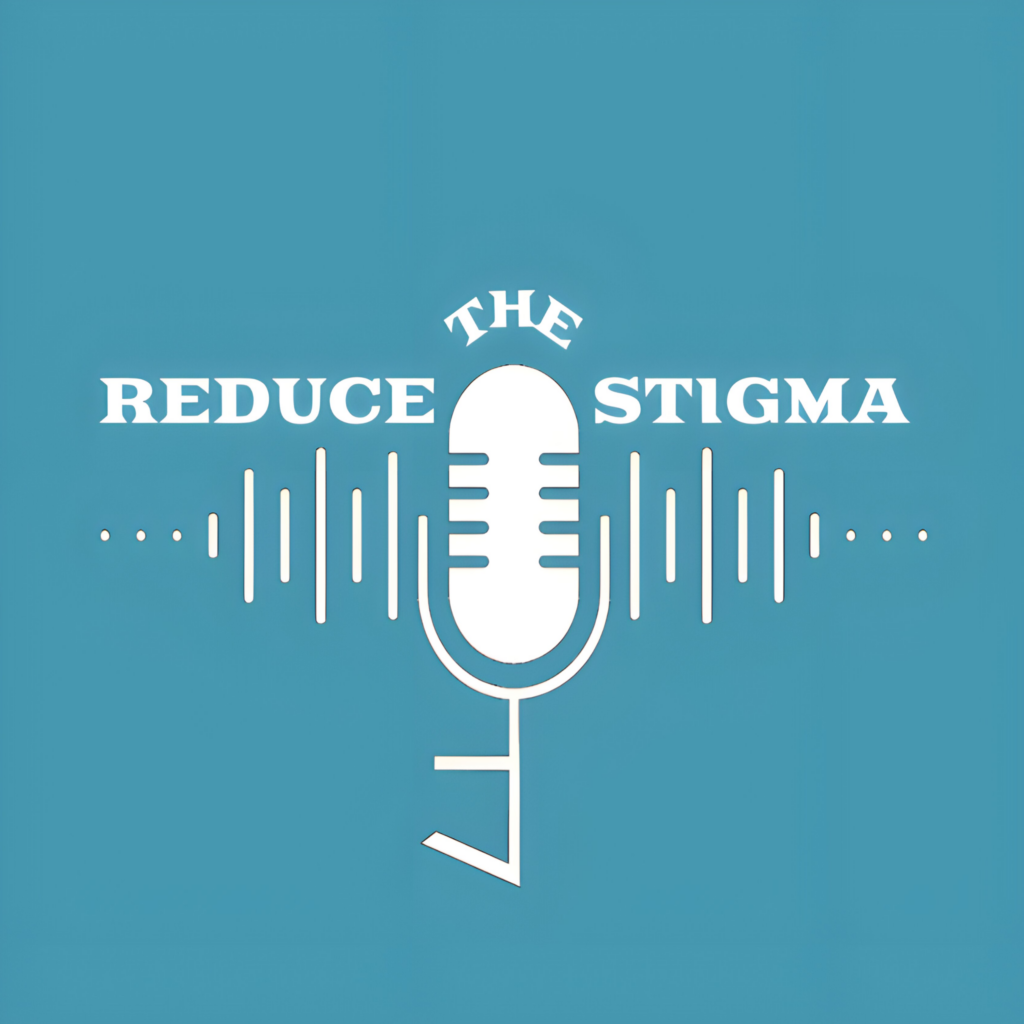
Our Podcast Website on Podops!
Listen on Apple Podcasts!

Listen on Spotify!

Listen on iHeart Radio!

Listen on YouTube Podcasts!
Follow Straight Up Care
Transcript
Whitney Menarcheck | she/her (00:00) In the spotlight today is Belinda Ennis, a peer in training in Arkansas. Belinda's enthusiasm for the recovery community and empowering individuals is absolutely infectious. Sharing her own experiences with physical, mental, and behavioral needs, Belinda discusses everything from forced engagement and services, to the impact of language, to the need for safe and brave spaces. Stay tuned for Belinda's story and get ready to be inspired as we reduce the stigma. Whitney Menarcheck | she/her (01:36) Hello and welcome to Meet the Peer. With me today we have Belinda Ennis, a peer in training in Arkansas. Welcome Belinda. Belinda Ennis (she/they) (01:44) Hi there. Really nice to be here on the website today. Excited to do this interview. Whitney Menarcheck | she/her (01:50) I'm so excited to talk to you and I kind of want to start by asking about a peer in training. I don't know. I'm not familiar with Arkansas. Can you tell me a little bit about the peer space in your state? Belinda Ennis (she/they) (02:03) Absolutely. So Arkansas is actually leading the nation when it comes to recovery success and success for the peers as well. We actually have a three tiered system where we have core peer specialist recovery support training and then it goes to advanced peer and then goes to supervisor, peer supervisor. And then from there it could go on to national peer But that's the system that we have in Arkansas. And the requirements are pretty tough whenever it comes to getting the state certification. So I have 500 hours that I need to obtain providing peer services, and that can be worker volunteer. I have 46 continued education hours I need to get. There's 25 peer supervision hours that I work on with my peer supervisor. It's a very...well networked system, something that I've noticed so far is whenever I was going through and trying to find the right supervisor for me is the conversations I had with everyone was that there is so much support through the training for all of this and obtaining your requirements. So while it sounds really daunting at first, I don't have any doubt that I'm gonna be able to make it to the next level and then the next one. Whitney Menarcheck | she/her (03:20) Well, what a great reflection of the recovery community in general is just really working to lift one another up. That's what I'm hearing. Belinda Ennis (she/they) (03:29) Absolutely, it was really inspiring. Once I got my peer support training, I'm now certified to conduct peer services even though I'm not state certified as a peer yet. I am finding this community, like you were saying, that is vibrant and it's alive and people are interested and engaged. It's something that doesn't revolve around work, it doesn't revolve around home, it doesn't revolve around bars and third spaces that are not safe for me. I am really pleased to say that the more I come into contact with people in recovery, the more inspired I am and the more the fire gets lit under me, you know? Whitney Menarcheck | she/her (04:10) Absolutely, I feel the same exact way and I am the one who's so lucky to get to engage in these conversations with peers and learn about them and just, you know, we really are breaking down stigma just by sharing stories. That's the best way is to put a face to the experience. And so can you give us a little insight into what your lived experience is? Belinda Ennis (she/they) (04:37) Sure. I have lived experience as both a minor and adult with mental and physical health concerns, including substance use disorder, spinal trauma, TMJD, chronic pain, PCOS, neurodivergence, CPTSD, self -harm, eating disorders, insomnia, OCD, major depressive order, general anxiety disorder, and borderline personality traits. since undergoing many different types of mental health treatment centers, short and long -term recovery programs. Again, as both minor and an adult, I've been through homelessness, but my life has completely changed. The tone and cadence of my day -to -day is completely different. You know, I had burned all of my bridges. My relationships with people were not good, and I could no longer relate because my world was so removed, is what it felt like, and I was alienated and isolated.The biggest catalyst for my addictive tendencies to really take off were, it was whenever my grandma passed away. She was my best friend and she was like the only like non -toxic family member, especially when it came to authority that I had encountered. And I had zero idea how to deal with my grief at all. And so, you know, there was a lot of time and pain and struggle of. I don't want to be here anymore. And people, it felt like one were leaving my life because they couldn't talk to me about these issues. So I ended up in a situation where my family gave me an ultimatum and they used some of my younger family members as emotional collateral to say, you will go through this program. You will enter this faith -based 13 -month program or you're not gonna darken our doorstep again. And you know, it's a prime example of a lot of people's story in recovery where they don't have the ability to advocate for themselves. They're in a really tough situation, their circumstances, you know, everything seems like a catch -22. If I do this, it hurts me. If I do this, it hurts someone else. So that's something that I can really relate to. And I really, I wish that there had been support for me during that time because that program was so detrimental to my physical and mental well -being. We weren't allowed to talk about our past, and that's what they called it. You would get written up. You couldn't talk to your family. For 13 of the months that I went to that program, because I did graduate, I couldn't talk to my family, and those were the only people that we were allowed to have outside contact with. So I want to bring to light some of these experiences that I've had because there are a lot of people who have actually been through it and are almost forced into the shadows because they believe the experience is so singular that no one can relate. I'm here to say I can relate. I understand what it's like to have food and sleep restricted when it's held. I understand what it's like to be in recovery and be exploited for free labor because that's what some recovery programs do. There are places that aren't doing the right thing. Not that that's where I want the focus to be, but there should be acknowledgement in my mind. You know, and there was fatigue constantly from all the work that we were doing. But what haunts me is that, you know, people in recovery are taken advantage of and abused by multiple factions, you know, around the world every day. And so I want to provide a lot of support for that, you know, and the transition back into the real world, whether or not the program or treatment that you go through is, you know, abusive and right. Or, you know what I mean? There are a lot of folks that.just need some support. And so I definitely can, I could expand on for a while how hard it was to come back to the real world and not be able to have a lot of people to relate to. And so the turnaround point for me was definitely whenever I started to self -advocate and I started to search out relationships with my primary care physician.I had to find a good therapist. It's really hard. People don't talk about how hard it is to find a good therapist, but it is. It's one step at a time. It's how I do my best to take things now. I have ways to calm down my nervous system. My therapist is the reason that I started peer work. As I told her, I wanted to be able to talk more than once a week. I was like, I just have so many things I want to say you know, things I want to process with you. And she just said to me one day, she was like, have you thought about attending online support groups? Because she knows that that escape of the remote option is very important to me. If I become uncomfortable, I want that fight or flight. And so I started attending some peer support groups and doing these things that were, you know, what I wanted to do, because I realized that even though I had been in recovery for a while, I wasn't living life the way that I wanted to. And I was still Whitney Menarcheck | she/her (09:23) Oh yeah, right. Belinda Ennis (she/they) (09:38) You know, even though I was on the right medication for my depression and all these other things, there's still a missing piece. And I think that was purpose and peace in my home. And so I've been working really hard on that. You know, I saw those peer support specialists whenever I was in those online support groups. And I said, I want to do that because I know that I didn't even attend that many support groups during some of those really hard times in recovery. But....They were crucial. You know, it was a turning point that could have been really bad. Yes, yes, it definitely did. You know, I can say now that, you know, I'm living my dreams every day. I've worked in many different environments now. I've gained useful experiences. I found out what I'm passionate about, which is peer work. I began to build a really cozy home and garden that I never could have imagined. I have pets and a partner and friends and, you know, it's... Whitney Menarcheck | she/her (10:10) right, he made an impact. Mm -hmm. Belinda Ennis (she/they) (10:37) bigger and better than I ever could have dreamed of, you know, because even during parts in recovery, I was like, I feel like I should feel better than this. But there had to be a lot of patience and like with myself and, you know, I'm at a point now where I enjoy my own company. How crazy is that, you know? So I'm so glad that I did not give up because there were so many times I would have gladly given up my life and the fact that I... Whitney Menarcheck | she/her (10:45) Mmm. Belinda Ennis (she/they) (11:06) I have something to fight for now, really, really means everything. It feels like a privilege. I have the tools and the drive to go after what I'm passionate about, which I really love the recovery community. I can't drive it home enough. This feels like home. Whitney Menarcheck | she/her (11:23) Oh, how amazing. And thank you for sharing all that. I'm processing what you shared because there's a lot there. And do you mind me asking how old were you when your grandmother died and kind of the snowball effect started? Belinda Ennis (she/they) (11:33) Sure, I was 20 and turned 21 kind of in the middle of it. It was about a year of snowballing downhill for sure. Whitney Menarcheck | she/her (11:53) Yeah, okay. And you know, what I heard you say was that she was a very, it sounds like positive and supportive role, adult in your life. And to go into lose that, to have that grief process and then be told you, it sounds like you maybe manipulated into going to a certain program and. Belinda Ennis (she/they) (12:19) Mm -hmm. Whitney Menarcheck | she/her (12:21) If you don't, you're not welcome. So you lost your primary support and you were told go or you're not welcome. That... Belinda Ennis (she/they) (12:27) Hmm. Whitney Menarcheck | she/her (12:32) That is so heavy on the heart. Belinda Ennis (she/they) (12:35) It is, and I mean a faith -based program where I've said I've tried this path and it doesn't work for me, please don't make me do this. It does weigh heavy and so many people I feel like there are no options and I asked for options. I want people to know that they do exist. You have them even if you feel like you're being forced. Whitney Menarcheck | she/her (12:43) Mmm and dependent on the person situation, you know, it sounds like for you, it was a lot of family force. For others, it can be legal force, you know, and it really, the person is lost. And then the success is not based off of the person becoming who they want to be, but rather whether or not they check the box that some external entity said. Belinda Ennis (she/they) (13:04) Mm -hmm. Absolutely. Whitney Menarcheck | she/her (13:26) is the metric of success. Belinda Ennis (she/they) (13:29) That's a beautiful summation of it, you know, and I've had to do a lot of separating out from how I define myself through the eyes of these authority figures and these family members. You know, it's very hard to separate. You know, it takes, this has taken time and it's still taking time. I still live in my hometown. You know, people talk about, you know, don't go back to your hometown. I would discourage saying that because you never know what you're capable of. You used to hate this place. I love it here now. It's all about environment and tone and choices, you know? Whitney Menarcheck | she/her (14:05) and how amazing to be able to take a place and rewrite the narrative with it. That's pretty remarkable as well. Belinda Ennis (she/they) (14:13) Yeah, it definitely rocks my socks off to put it, you know, in a unique way. Whitney Menarcheck | she/her (14:16) I love that. Yes. And so you talked a little bit about, you know, these programs that are out there, there are programs that are taking advantage. You know, unfortunately, recovery, mental health, substance use programs, many are bottom line driven. And because there are people who have external forces saying you have to do this, whether it's family or legal or what have you, some places have work that's requiring certain things. The power just taken away from the person, which makes them even more at risk of being taken advantage of. Belinda Ennis (she/they) (15:01) Absolutely, like the exploitation can run really rampant and it's everywhere and I want to be a part of that change. I think peer work is a really important part of that change and you know, it's the striving that we have to begin a partnership with the clinical side of treatment and to open the conversation. This is a really hard uphill battle, but we are part of a civil rights movement right now We are part of destigmatization. We are part of decriminalization so that these practices can be safer and so that people aren't driven into the shadows for trying to cope with their pain because life is hard. Whitney Menarcheck | she/her (15:40) Life is hard and life happens to everyone. And what I really appreciated about how you expressed your lived experience is that you included things that others may not have necessarily thought of, right? You talked about physical health, chronic pain, and there were other lived experiences that, you know, because there's a diagnosis, sometimes we're like, nah, whatever, you know, but. Belinda Ennis (she/they) (15:43) It does. Yeah. Whitney Menarcheck | she/her (16:09) It impacts the person, it impacts their functioning, it impacts their sense of self, and those are just as hard, you know? And oftentimes those invisible illnesses are the ones that are most dismissed, chronic pain especially. You know, there's a lot of questioning, is it even valid? Are you really in pain? Have you experienced that? Belinda Ennis (she/they) (16:18) Absolutely. Oh yeah. Oh my gosh, you have to like prove it to people and like, that is absolutely something I've experienced and you know, don't get me wrong, there's a certain, there's a process that a lot of people with chronic pain that are also in recovery are familiar with where we almost manipulate the system without thinking of it like that at all. We are just looking for what we think is the right way to do things to soothe, to find comfort. And I have a fertility and hormone disorder. I have a jaw disorder. I've been referred for out of state surgery for no one in Arkansas will touch it. You know what I mean? There are so many people who are dealing with laundry list. And that's kind of why I gave a list of things that I've dealt with because people see all of their diagnoses and there is a judgment that comes out of society. You know, why do you talk about having all these things? You're looking for attention. I could say endless things about what I heard, you know, whenever I was trying to get help. And so like if someone is talking about these things, I guarantee you they are looking for a solution, even if it just seems like they want to talk about it. That can help people, you know, but chronic pain. Chronic pain is a driving cause I know for opioid addiction for sure. Whitney Menarcheck | she/her (17:52) Slowly. Belinda Ennis (she/they) (17:58) I know that many times I have been in some of just the worst pain of my life and I would have done just about anything to make it stop. But the tools and process that I've been able to find on my own and that I want to help other people find their unique recovery path because there is no one right way. There is no one right way it is unique to everyone. Whitney Menarcheck | she/her (18:25) Absolutely. And you said that we're going through a civil rights movement and that peers are going to be playing a central role. You've already mentioned kind of bridging over to the clinical side. What other ways do you see the role of a peer being instrumental in delivering that personalized care and changing the way that maybe the system has run for decades? Belinda Ennis (she/they) (18:52) I'm going to actually use this as a moment to kind of boost one of the nonprofits in Arkansas because they've set a great example and I want to follow it. And I'm actually, I'm going to start working with them this weekend. I'm very excited, but it's Northwest Arkansas Harm Reduction and it's nwaharmreduction .org. And, you know, I, I absolutely love what they do. They talk about social acceptance being, Whitney Menarcheck | she/her (19:00) All right. Belinda Ennis (she/they) (19:21) across the board, an unbiased thing. It is extended to everyone, no matter what you do or what you use. It does not matter because you're a person. They are the first and only program in Arkansas to have a clean needle exchange setup process. They are giving fentanyl strips. They're giving xylazine strips, which I didn't even know was a thing until recently. These things are emerging all the time. They're giving out condoms. They're giving out, you know, resources for STD panels. They have, you know, Narcan that they provide to people. So if you have someone like they have actively saved lives, you can go on their website and you can see a life was saved in Fayetteville, Arkansas, you know, from overdose this weekend. How amazing, you know, and these are really small things that all add up whenever we're talking about somebody doing this training or giving somebody Narcan. Whitney Menarcheck | she/her (20:07) Yeah. Belinda Ennis (she/they) (20:18) That one small step will save somebody's life. It's a guarantee. And so I really like what they've done to be a change agent across the board. And I want to start to do that when it comes to agency, federal, state level. I've seen examples of people just getting the language changed in inpatient settings to where it is more person centered. How much of a difference would that have made for me? And I think about how I would have felt to be in a more person -centered environment, instead of getting called a flight risk and all kinds of stuff. Whitney Menarcheck | she/her (20:53) Yeah. You know, could you actually speak to that a little bit more? What would it have been like? What was it the experience for you, the language you heard versus what you hope to have moving forward? What impact would that have? Belinda Ennis (she/they) (20:58) Mm -hmm. So I know that there is a lack of funding in a lot of treatment places, especially if they're state centers and things like that. And a lot of my inpatient experience for mental health intake was whenever I was a minor and it was not good. And a lot of it is due to people not being paid enough for their valuable services. I genuinely believe that. And they get run down and they get burnt out And it results in carelessness. And what I mean by that is, you know, man, I missed my phone call one night because somebody wasn't doing their shift properly and I couldn't get it made up. And those little things make all the difference in your day to day and how you feel about yourself. And, you know, when somebody puts your priorities first and they are advocating for you whenever, especially inpatient or, you know, treatment of any kind whenever there are certain restrictions on what you can do for yourself. We do want to live a self -directed life. We do want to promote self -advocacy and empowerment and finding tools and resources to better your experience. But there are times whenever there needs to be an advocate that says, hey, are we sure this person needs to be on a bunch of medication? Can I talk to them first and see what's going on? Are there underlying causes? Because I know that I was placed on over 40 different medications before I hit 18. That's insane. You know, because every time I was like, hey, this isn't working, they would reevaluate it almost monthly, sometimes weekly, and they would change and add and adjust the dosage and take things away and add and add. And, you know, I would go and look these things up and half the time, these medications aren't supposed to be getting taken together. They have interactions that can be fatal. And so I saw with my own eyes multiple times. Whitney Menarcheck | she/her (22:36) Wow. Wow. Okay. Belinda Ennis (she/they) (23:01) the lack of regard it felt like for following processes that were in place for a reason to protect people. And so I think it comes down to, yes, we need to give our professionals more than a living wage. We should be able to thrive, not just survive. And peer support is one thing, but I mean clinicians across the board as well. Because we can't replace each other in this scenario. Peer support can't step in for therapy. Therapy can't step in for psychiatry. And around we go. Whitney Menarcheck | she/her (23:21) Right, right. Belinda Ennis (she/they) (23:31) you know, all of these pieces are important. We should be working together, not against each other, you know, because that does happen, sadly. It gets to be, why are you paid more than me? Because we negotiated for more, you know. Call us next time you wanna negotiate your pay. We would love to, you know, I would love to see all of us band together whenever it comes to recovery, and I don't care if that person is actively in recovery or not. If you're contributing towards the cause, You know, this is one step towards change that we can make and it all starts with the language. It really does. Whitney Menarcheck | she/her (24:07) I am just in awe at how you express that. And I hope everyone can rewind right now and listen to that again. Because yeah, the language sets the foundation. Because if we look at it from just the way that the human brain works, our language impacts our thoughts and beliefs, and those impact our actions. Belinda Ennis (she/they) (24:15) Hahaha! Whitney Menarcheck | she/her (24:33) And so we can change them by changing our language and by changing our language, we can also reduce the negativity that someone who's struggling is experiencing. Yeah. Belinda Ennis (she/they) (24:37) Yes. Yes, it's hard enough to reach out and then to have to continually re -identify yourself in a way you don't care for. I think we should be able to empower people to take control over how they're referred to. Being referred to as a peer instead of as a junkie is pretty great. There was a lot of stuff in training that to be in peer support work that I didn't realize was so there was stigma that I didn't realize in certain terminology that I've always used such as mental illness. Somebody, one of the facilitators said, mental health concerns and that reframing even helped me with how I see myself. And what he said was, I don't feel ill. I'm doing many great things for myself and for others on a daily basis. I don't feel mentally ill right now. So I don't like to call myself that. And that was huge for me to hear. I...I wanted to refer to myself as person in recovery instead of patient. Simple as that. People are going through something. They don't need to be pigeonholed on top of it all and isolated and outcast. Because that's what these labels do every time without fail. There is always somebody left out on the sidelines, period. Whitney Menarcheck | she/her (26:11) Absolutely. And that's unfortunately the case. And we need, you know, our brains, I get it, our brains naturally categorize and everything. That's how it can be. Absolutely. It used to be a survival mechanism and it still is at times, right? But we are, we're defaulting to that. Belinda Ennis (she/they) (26:25) It can be helpful. Whitney Menarcheck | she/her (26:41) too much rather than stopping thinking and being mindful and considering? You know, we all have a history and we would want people to respect our history. Are we stopping, pausing, and respecting the potential history that the person that we may be looking at has had? Whether or not we know it, and we may never know it, but can we at least maybe look at them and say, I'm going to give, I'm going to recognize that they likely have a history, a story that I don't know. Belinda Ennis (she/they) (27:08) Right, and I don't have a right to that, you know what I mean? And as soon as somebody entrusts me with a piece of that story, I don't use that to label them. If I have to describe them in some way that involves one of those aspects, you know, again, something from training that, so ex -con, inmate, criminal, justice -involved individual, I loved hearing that. I loved hearing these things, because I don't think about this stuff. And other people have come up with amazing ways to talk about it. So, you know, I wanna have not only a safe space, but a brave space for people to work in. They don't only feel safe to entrust themselves to others, but they feel brave. They want to be themselves. Whitney Menarcheck | she/her (27:50) I've never, yes, safe and brave, let's do that. Let's make it that way. And so clearly you have a passion for recovery, not just because of your lived experience. I mean, you have thought so much, it's clear about the impact of one person's actions on others. So it kind of is obvious why you became a peer support. And...As you reflect on the journey so far, you've referenced your trainings. What is something you'd like people to know about peer support work that maybe is either misunderstood or just not realized? Belinda Ennis (she/they) (28:33) We are not therapists. I'm not here to give you advice. There are many times where I wish that I just had a space to cry and to talk and to process without somebody trying to solve my problem. Because I'm going to solve it. At the end of the day, this is my problem to face. But when I'm talking about myself, at least, in regards to peer work, I need someone that they might help me explore my options or reframe what I said back to me in a way that... Whitney Menarcheck | she/her (28:46) Bye. Belinda Ennis (she/they) (29:02) helps me gain a better understanding of the situation I'm in. Help me mitigate the overwhelm and set small goals so that I can reach my large goals. Set a recovery plan, you know? And it's not for me to come up with anyone else's recovery plan. It's for you. It is only for your benefit. And I'm not going to, you know, I want to make sure that I have absolutely no like unconscious bias because that's something that is bled through and some of the support I've received and the clinical treatment I've received even. And specifically, I wanna talk about having secular support and support for faith transitions because the state that I live in is very religious and it's a very religious recovery community and I have a great amount of respect for that. A higher power can make the difference between someone's life and death or their quality of life versus suffering And I completely understand that, but I want there to be spaces for everyone that, you know, I'm free to talk about, you know, or speculate on what I might believe in, you know, a little bit more open and conscious that everyone's, again, everyone's recovery is different. Everyone has a different, you know, purpose for their life at the end of the day. And sometimes that purpose changes from minute to minute. And I wouldn't dream of telling someone your progress is because of my God that I believe in or whatever, because I've been told that and it doesn't line up with what I believe in. And so I just want to tell people, you can explore, you are free. You know? Whitney Menarcheck | she/her (30:39) Right, absolutely. It comes back to that unique recovery. Everyone's is gonna look different. And we say that a lot, right? Individualized. But we don't always think about kind of the nuances of what the individualized look means. So I think that's a. Belinda Ennis (she/they) (30:51) Yeah. Absolutely. How much our unconscious bias might bleed over, you know, I still have it. Everyone does. Whitney Menarcheck | she/her (31:12) Yes, absolutely. You are so true. And we have to recognize that we're susceptible to that. We're human, that it can be there. And so that's another call from being intentional in our words and being aware and mindful, and then open to maybe someone saying, hey, really, the way when you just said that, it didn't feel great And I think that comes back to that power of the person, maybe patient, client, individual, person receiving services, to be able to feel safe, to say, I don't want that care, or that language hurts me. And just continuing, yes, yes, absolutely. So safe and brave for the workers, safe and brave for the person. Belinda Ennis (she/they) (31:55) Right. Take that power back, you know? Yes, that man, we should make t -shirts. Whitney Menarcheck | she/her (32:09) That's a yes. So as we come to the end of what has been a great conversation and went by really fast for me, can you share, you've touched on this a little bit already with talking about language, but can you share an example of a stigma you've experienced, whether it was a word that was used or assumption that was made? Belinda Ennis (she/they) (32:33) The subject of trust is really difficult when it comes to recovery and the relationships, you know, it was really hard to get that back and it's hard to establish credibility. You know what I mean? I think that was one of the hardest things that I found is I have all these, you know, I'm coming out of my treatment program and I'm looking for jobs and I'm...I don't have anything on my resume really, because I've been up to no good for part of my life, you know? Not that that's how I would have put it at the time, but I try to use humor to lighten at least my own situation. I find it helps. But that aside, I really, I'm very passionate about removing the idea that somebody has to earn their relationship back. You know, there can be trust established right away. The key point is boundaries, you know, setting boundaries for yourself, respecting other people's boundaries, you know, but it was really hard to do that at first because people don't talk about doing that right out of recovery. It's almost like you owe the world something because you were out of it for part of the time. And I just don't think that's true. We were in pain. We needed help. You know, I needed help. So I just want to give that support of, you know, I trust you immediately. And it's not until you give me a reason not to, I don't want to put, you know, a qualifying statement after that. If you come into my, you know, I don't want to say care, that's not what it is. If you come to me for peer support services, I trust you. I know that you wanted to talk. There is absolutely no reason for there to be anything to interfere with that. Whitney Menarcheck | she/her (33:56) Absolutely. Belinda Ennis (she/they) (34:22) You know, that rapport is crucial. It's kind of sacred, you know. We're not therapists, but the rapport can be kind of similar when it comes to the relationship. Kind of. Just want to... I do want to put a qualifying statement on that. Whitney Menarcheck | she/her (34:33) Yes, yes. No, I mean, connection in general is important, you know, and so rapport is traditionally, yes, talked about with counselors and therapeutic rapport. There is peer rapport, though. There is the need to feel connected and safe and respected. So I think that's a great little highlight there. Belinda Ennis (she/they) (34:50) Yeah. Whitney Menarcheck | she/her (35:03) But finally, for the person out there who's listening or watching, who's going through a tough time, don't talk to me right now, you talk to them. What would you like them to hear? Belinda Ennis (she/they) (35:16) I want you to remember on the hard days that there is hope. There are good people in the world that care about what you are going through even if you have not met them yet. They exist. You deserve a full rich life no matter what you have been through. And I don't want to say what you have done, what you have been through because again, life is hard. There is no shame in feeling like you need to talk to someone because you can't do this by yourself anymore. I want to say don't stop reaching out because it can be really hard to find the right treatment or recovery path for you, however you'd like to put that. It's hard to find the right individuals that you gel with and you connect and vibe with. Don't give up, keep reaching out. I went through a good handful of professionals that were actually more detrimental than they were beneficial to me, but I learned how to say this isn't right for me, I'm moving on. And not to focus on the overwhelm of, all that there is in the world that could go wrong. There's so much that can go right. There are solutions, there are always going to be problems, but there are always solutions and you do have them inside of you. I want to help provide support. There are many peer specialists that want to help provide support so that you can unlock who you want to be. Whitney Menarcheck | she/her (36:31) Amazing. Thank you. And Belinda, thank you for this entire conversation, for being vulnerable and opening yourself up in your story and sharing it. And thank you for your ability to take power back. Belinda Ennis (she/they) (36:50) Absolutely. I hope that everyone that hears this feels empowered. There's a good future for you. I'm telling you, there's good stuff just waiting. Whitney Menarcheck | she/her (36:59) What a great way to wrap it up and end on that optimism, that hope. And if you're listening and you are as energized as I am right now, that infilled with that hope and connecting with Belinda and interested in working with her, please visit straightupcare .com and you can schedule an appointment. The link is also in the show notes. So on behalf of Straight Up Care, thank you for joining us.
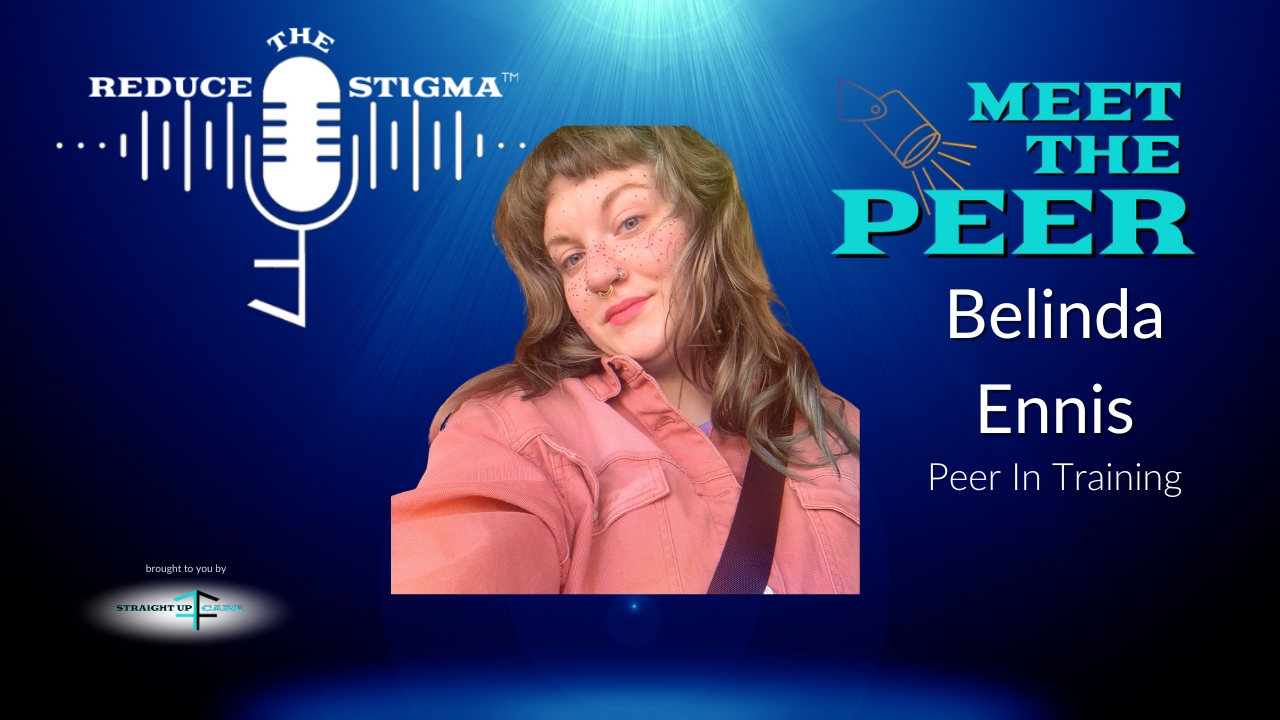
Pingback: